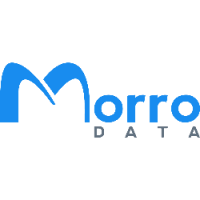NAS: A Poor Choice for Remote Access
NAS: A Poor Choice for Remote Access
6 Signs Companies Should Shift from NAS to Cloud NAS
Nowadays, organizations with multiple locations face unique challenges when configuring and maintaining a storage solution. In addition to the absence of proper technical expertise at your remote locations and the lack of centralized IT control, each of which can put your business-critical data at risk, the size, physical configuration, and data needs of each remote or branch office site (ROBO) are often vastly different from one another. As a result, configuring and managing a distributed storage solution using a network attached storage (NAS) device that encompasses all of your geographically dispersed locations can be a daunting task for even the best storage administrator.
Consider the complexity of these challenges to a legacy NAS-based storage system:
1. Disparate Storage Needs
Each office location can have vastly different storage requirements from one another; while a regional office may need several terabytes, 500 gigabytes may be plenty for a satellite sales office. A physical NAS must match the storage needs of each site, plus the anticipated growth in storage needs in the foreseeable future. At a minimum, this adds complexity to the planning and deployment of the storage solution across sites; but in many cases, it also leads to over purchase, since most NAS devices are limited in their ability to scale down to smaller capacities. This can lead to a tremendous waste of the company’s limited resources.
2. Physical Limitations of the Office
Most enterprise-class storage systems are in a rackmount footprint and designed for performance. They’re also typically extremely loud. This isn’t a problem, assuming they’ll be isolated in a data center; but in a small sales office with only four walls and a bunch of desks, it can quickly become a major issue.
3. Technical Affinity of the Personnel
Since it’s nearly impossible to have a qualified IT resource at each location, it may be necessary to assign a local employee with some degree of computer expertise as the NAS administrator. But even if that person is extraordinarily responsible, they likely have a ‘day job’ that takes priority, not to mention the fact that they likely lack the true expertise necessary for such an essential responsibility. As a result, there’s no guarantee that the job will be done correctly or consistently, which can put your business-critical data at risk.
4. The Mobility of the Workforce
Employees who work remotely or who travel are frequently disconnected from the network; as a result, they typically store their files locally on their laptop, rather than on a corporate drive. This creates challenges for NAS administrators since the business-critical data on those laptops will be left out of the nightly backup. Those laptops can go weeks before they’re attached to the network again, so the loss, damage, or theft of that laptop – or even just a simple failure of the hard drive – can cause permanent data loss.
5. Centralized Management
As mentioned in a prior blog, without centralized control over the entire storage solution, any problems or inconsistencies in the backup requires the NAS administrator to physically travel to the site to investigate and remediate the issue, causing the organization to potentially go days with a portion of their business-critical data at risk.
6. Replication and File Sharing Between Sites
NAS devices work on a hub-and-spoke model with third-party sync software installed on the file system in the company’s HQ that communicates with all of the remote offices to keep all files updated. So when a file is modified at any branch location, it must first sync with the HQ file system before being distributed to the other offices. In addition to the potential for serious performance issues, sync software is often unreliable and stops running without warning. When this happens, file syncing simply ceases, with no warning or indication of any type.
Benefits of Hybrid Cloud File Servers
Morro Data CloudNAS solves all of these issues by centralizing storage, services, and management in the cloud. With the hybrid cloud file system, all data is saved directly to the cloud, regardless of physical location. CloudNAS benefits include:
-
Cloud-First
The cloud is the primary storage location for your files, providing you with reliable storage and backups – even when workers are disconnected from the network.
-
No VPN or Replication Software
CloudNAS is an all-in-one solution for sharing files amongst locations, so there’s no need for third-party software or additional tools. All files are immediately visible and available to every location, but with application-level file locking across sites to avoid version conflicts.
-
Unparalleled Scalability
The cloud provides infinite scalability and you only pay for what you use, thereby eliminating overprovisioning.
-
No Maintenance or Management Issues
The only hardware required with Morro CloudNAS is a palm-sized CacheDrive that’s completely quiet, so it won’t be in the way, even at the smallest sales office. All backups are performed in the background using Cache & Sync technology, so there’s no need for anybody in the local office to manage, maintain, or even touch the device.
-
Centralized Management and Control
IT maintains centralized control over the storage environment and never has to worry about a missed backup. Every office can be centrally managed from the Morro Cloud Manager, a web-based console that enables setup, reboot, shut down, and user management.
Cloud, Remote Work From Home with Performance
With the challenges today, some companies shifted to long-term work from home and reveal related policy (read an article from flexjobs.com). Businesses need to empower teams to work collaboratively and create a hybrid environment for their on-site and remote workers. Morro Data CloudNAS allows two or more locations to collaborate and sync without VPN. CacheDrive can be deployed on-prem, in cloud, and at home. With CacheDrive at home, employees can build in-house offices and boost remote work productivity.
